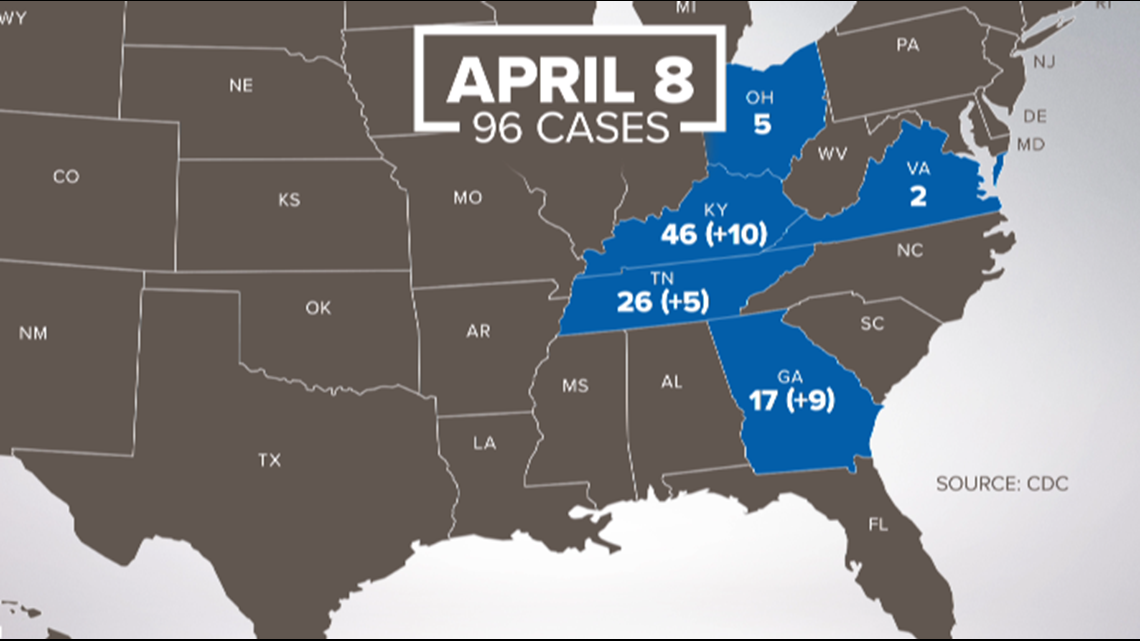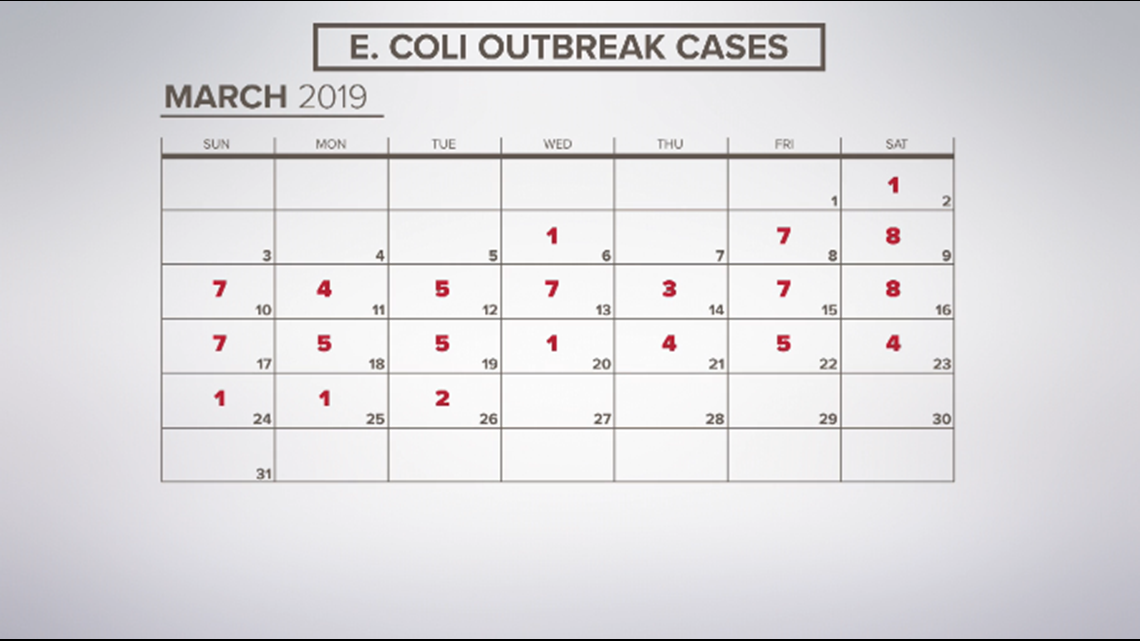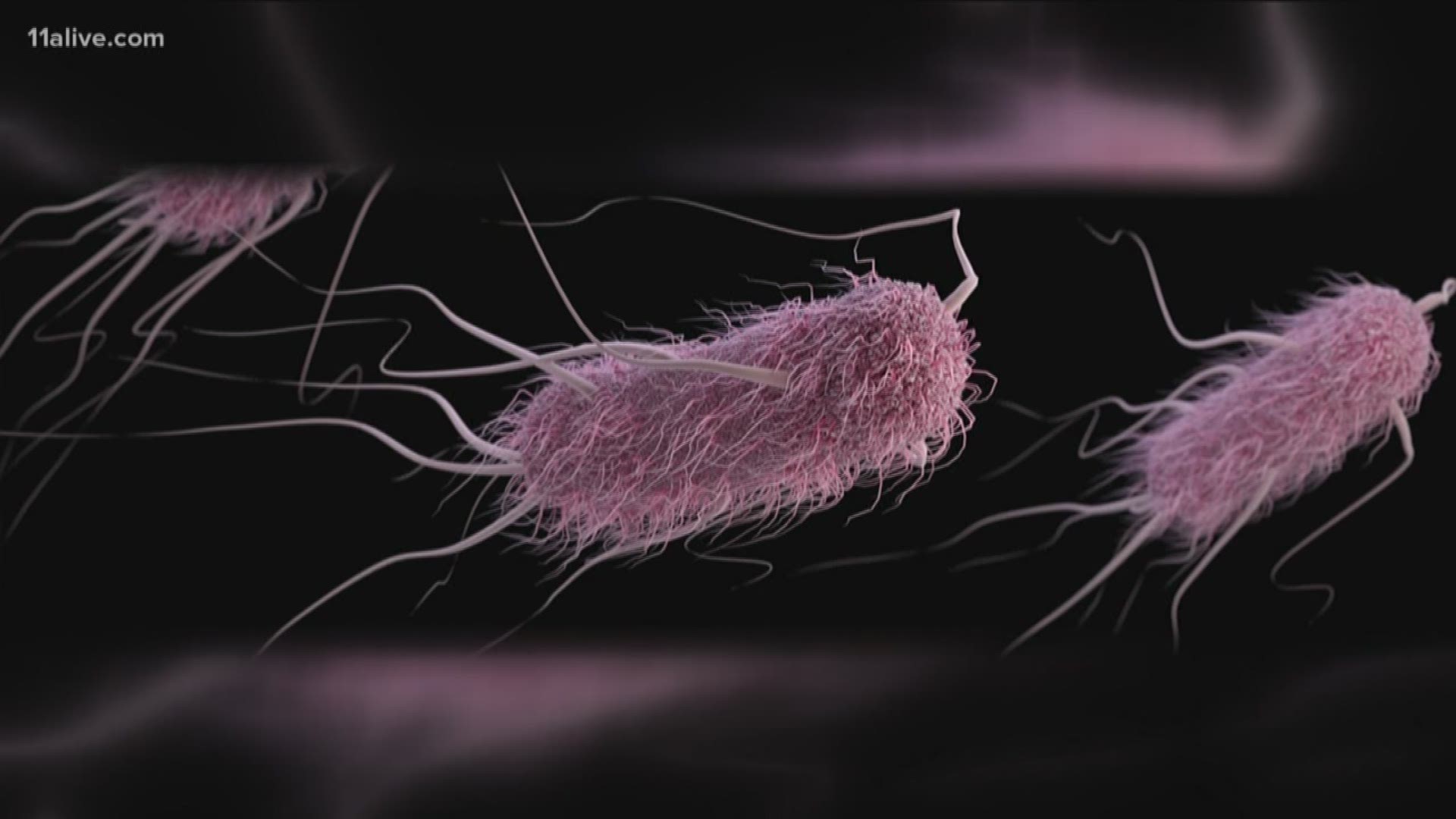The number of E. coli cases continues to grow across Georgia as officials work to find the cause of the multi-state bacteria outbreak.
The outbreak is from an E. coli strain known as O103.
Ninety-six cases have been reported across Georgia, Tennessee, Kentucky, Ohio and Virginia, as of April 8, according to the Centers for Disease Control and Prevention (CDC). Eleven people have been hospitalized and no deaths have been reported. The median age of people infected with E. coli is 15, according to the CDC.


Most of the cases are in Kentucky and Tennessee, but Georgia has the third highest amount of E. coli cases – and that number appears to be rising.
As of April 8, 17 people across Georgia have been infected with the outbreak strain of E. coli (O103), up since April 4, when there were eight reported cases. According to Georgia Department of Health, the 17 cases are in the metro Atlanta area.
Laura Gieraltowski, an epidemiologist and leader of the CDC's Foodbourne Outbreak Response Team, said they are working to find the source of the outbreak.
"We are hoping that it will lead to a recall and we can get the product off the shelf," Gieraltowski said. "It's a large E. coli outbreak and it is moving quite quickly. We are still getting reports of new illness, so we expect that number to go up and go up here in Georgia as well."
According to CDC data, the number of total cases being reported has dropped off, but the outbreak is ongoing and new cases could be reported.


"There is a delay between the time when someone gets sick and then it gets reported to the CDC," Gieraltowski said. "That is usually about two to three weeks."
CDC researchers and state health departments are now looking for similarities between each case.
"Health departments are interviewing people as we get reports of new illnesses, we are collecting and analyzing all of that data to try to find the source of the infections," Gieraltowski said. "We are also working with our regulatory partners who look for the source of foods and they also test food for different bacteria."
Gieraltowski said that while 11 people have been hospitalized, no one has died -- likely because the O103 E. coli strain is less severe than other strains.
Advice to Consumers, Restaurants, and Retailers
Take action if you have symptoms of an E. coli infection:
- Talk to your healthcare provider.
- Write down what you ate in the week before you started to get sick.
- Report your illness to the health department.
- Assist public health investigators by answering questions about your illness.
Follow these general ways to prevent E. coli infection:
- Wash your hands. Wash hands after using the restroom or changing diapers, before and after preparing or eating food, and after contact with animals.
- Cook meats thoroughly to kill harmful germs. Cook ground beef, pork, and lamb to at least 160˚F. Cook steaks and roasts to at least 145˚F and let rest for 3 minutes after you remove meat from the grill or stove. Use a food thermometer to check the temperature of the meat.
- Keep raw meats separate from foods that won’t be cooked before eating. Thoroughly wash hands, counters, cutting boards, and utensils with soap after they touch raw meat to avoid contaminating other foods.
- Wash fruits and vegetables before eating, unless the package says the contents have been washed.
- Avoid raw milk, other unpasteurized dairy products, and unpasteurized juices.
- Don’t prepare food or drinks for others when you are sick.
Symptoms of E. coli Infection
- People usually get sick from Shiga toxin-producing E. coli (STEC) 2–8 days (average of 3–4 days) after swallowing the germ.
- Symptoms often include severe stomach cramps, diarrhea (often bloody), and vomiting.
- Some people with a STEC infection may get a type of kidney failure called hemolytic uremic syndrome.
- For more information, see Symptoms of E. coli Infection.

